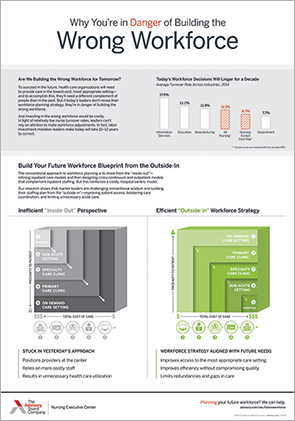Auto logout in seconds.
Continue LogoutSome medical students with disabilities underreport their disabilities to schools out of "fear of judgment, bias, and skewed perception of ability," according to a report from the Association of American Medical Colleges (AAMC).
About the AAMC report
According to the report, about 2.7% of medical school students in the United States have reported a disability to their school and received an accommodation. But the report authors argue it's likely that many more medical students have undisclosed disabilities as the percentage is well below the average of overall undergraduates—about 11%—who have reported a disability.
But the report suggests that many obstacles discourage medical students with disabilities from speaking up. Many medical schools don't have a distinct set of policies for how students with disabilities can access accommodations, and many don't have a person on their staff dedicated to handling accommodation requests.
The report details the experiences of a handful of medical students with disabilities, including one who was a year and a half into his training before his campus finally installed an automatic door that he needed. Another student said that it felt like his medical school was "making up rules along the way" as he tried to arrange accommodations to take a test. One resident contacted a disability representative at school, only to find the representative was allegedly unfamiliar with the Americans with Disabilities Act.
The report includes recommendations for schools, including that they hire an independent expert well-versed in disability access issues. The report further suggests that schools create an environment that facilitates questions about accommodations and eases anxieties about disclosing disabilities.
Discussion
According to Lisa Meeks, co-author of the AAMC report and a clinical lecturer at the University of Michigan Medical School's Institute for Health Policy and Innovation, one reason that so few medical students disclose disabilities is that the medical field expects perfection. "Their model is the culture of perfection—the perfect physician who can perform without needing anything," she said. "That's just not reality, but (students) remain quiet, and they silently suffer."
Geoffrey Young, the senior director for student affairs and programs at AAMC, said, "One of the important things about this report is that it really does amplify the call for disability to be really fully integrated within diversity and inclusion discussion at medical schools and teaching hospitals." He added, "I think we have to do a better job of educating those in the field about what the potential is for those with disabilities, versus what is consumed or assumed to be an automatic inability."
Separately, Meeks called for similar action, saying, "I think you have to change the narrative that is outward-facing, that the public sees, because a student with a disability [who is] thinking about applying to medical school is looking at that narrative" (Ross Johnson, Modern Healthcare, 3/15; Gordon, NPR, "Shots," 3/13).
Next, get our ready-to-use slides on health care industry trends for 2018
Download our ready-to-present slides to learn everything you'll need to know about payment reform, the provider market, purchaser behavior, and provider selection trends in 2018.
Don't miss out on the latest Advisory Board insights
Create your free account to access 1 resource, including the latest research and webinars.
Want access without creating an account?
You have 1 free members-only resource remaining this month.
1 free members-only resources remaining
1 free members-only resources remaining
You've reached your limit of free insights
Become a member to access all of Advisory Board's resources, events, and experts
Never miss out on the latest innovative health care content tailored to you.
Benefits include:
You've reached your limit of free insights
Become a member to access all of Advisory Board's resources, events, and experts
Never miss out on the latest innovative health care content tailored to you.
Benefits include:
This content is available through your Curated Research partnership with Advisory Board. Click on ‘view this resource’ to read the full piece
Email ask@advisory.com to learn more
Click on ‘Become a Member’ to learn about the benefits of a Full-Access partnership with Advisory Board
Never miss out on the latest innovative health care content tailored to you.
Benefits Include:
This is for members only. Learn more.
Click on ‘Become a Member’ to learn about the benefits of a Full-Access partnership with Advisory Board
Never miss out on the latest innovative health care content tailored to you.

